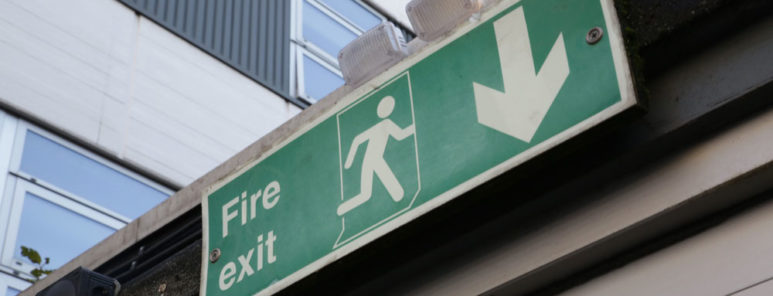Automatic fire detection & alarm systems help to keep premises and their occupants safe, by reacting to an increase in heat or the presence of smoke, to give early warning of a possible fire and enable people inside the building to evacuate. Unfortunately, they can also react to things such as steam, cigarette smoke, aerosol sprays and light smoke from cooking.
Unwanted Fire Signals
When a fire alarm goes off, as a result of anything other than a real fire, this is considered to be an unwanted fire signal or, traditionally, a false alarm.
Unwanted fire signals have local consequences that could include disruption and expense to your business, they also negatively impact the way people respond to fire alarm activations.
Reputable alarm system maintainers will be able to provide useful advice in how to reduce and manage unwanted fire signals.
Alarm Receiving Centres
Some fire detection & alarm systems are linked to an alarm receiving centre (ARC). ARCs monitor the system and contact the fire service if there is an activation.
South Yorkshire Fire & Rescue no longer automatically mobilise fire engines, following contact from an alarm receiving centre, to the following types of premises:
- Offices and shops
- Industrial buildings
- Public buildings like libraries or museums
- Places of worship
Instead, we will only mobilise fire engines if we receive a call to confirm there is definitely a fire.
If your fire detection and alarm system is monitored by an ARC and you are on this list you can make arrangements with your ARC to contact you, or a nominated individual, so you can attend the property and confirm if there is a fire.
We will still mobilise fire engines following contact from an ARC to:
- Domestic properties with fire and/or smoke alarms
- Other sleeping risk premises – including hospitals, sheltered housing, care or homes, houses of multiple occupation, flats, high-rise tower blocks, hotels, bedsits, boarding schools, colleges, universities or halls of residence
- Schools and national heritage sites
- Large industrial sites, covered by COMAH legislation
- National critical infrastructure
- Shops with homes or sleeping accommodation above/below
However, we expect owners of these systems to implement safe working practices to reasonably prevent us from being asked to attend false alarms, particularly where false alarms are a regular occurrence.
To help avoid unwanted fire signals, please ensure that:
- The fire risk assessment for your premises is up to date and reflects the conditions in your premises
- Your fire alarm and detection system has been property designed, installed, and commissioned and that it is properly managed and maintained
- You have people designated to take responsibility for the management and maintenance of your fire alarm system
- False alarm causes are investigated with appropriate action taken to prevent unnecessary recurrence and ensure effective system operation
- In the event of your fire alarm operating, the premises is evacuated, where this forms part of the fire strategy for your premises
- Your fire alarm procedures include the designation of specific staff to check whether or not there are any signs of a fire, when the fire alarm sounds
- If any signs of fire are found, ensure that there is a designated member of staff to call the fire service on 999
- Any false alarms are properly recorded in the fire alarm log book, including remedial actions taken to prevent a recurrence

